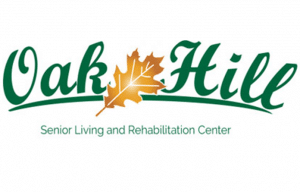More water talk in Waterloo
As it has been much of the year, water was the main topic of another meeting Monday night at Waterloo City Hall.
During the monthly utility meeting, a few residents expressed anger and frustration with recent water leaks at their places of residence and took aim at the city’s new water plant as the cause.
These complaints come despite continued positive reports from city officials on the quality of its water, as shared later in the meeting.
One female resident opened the meeting by saying these leaks “are all over town” and are “very costly to the homeowners,” estimating the repair cost at $2,500 to $5,000.
“The plumbers are even sayin’ ‘we can’t believe how many water leaks is goin’ on,” she said.
She also alleged that city policy on who is responsible for footing the bill on said repairs had changed, to which Waterloo Mayor Stan Darter stated that is not the case.
“From curbstop to home is the resident’s responsibility,” Darter said, stressing that this has been the policy for several years.
A male resident who recently experienced such a leak at his seven-year-old home said “there has to be some correlation” to the leaks and the city’s new water plant that went online in December.
A female resident then chimed in by saying “the taste of the water is absolutely disgusting now.”
“Our water quality is second to none in this area,” Darter replied.
“It can’t be! I can smell my water in the next room when the faucet runs,” the male resident countered. “I’m not saying it doesn’t meet your qualifications. It’s not the best water. We’ve lived other places. It’s terrible water.”
The female resident added that Waterloo “did have good water” prior to the new water plant.
“It smells funny. It tastes disgusting. It’s nasty,” she claimed.
Darter said after the meeting that the City of Waterloo has 5,000 water meters serving 11,000-plus residents – not counting all those who drink the water in its restaurants, taverns and other establishments with only a few voicing at meetings.
The common theme for these leaks, it was discussed further by both the angry residents and city officials, appear to involve newer “Type K” flared copper fittings.
“We recognize there are leaks,” Waterloo Public Works Director JR Landeck said. “We have leaks every year in the city.”
Landeck said the city has researched back a couple of years on each reported water leak in the city to determine commonalities.
Landeck presented a diagram of a typical order of operation as it relates to a water/plumbing design in the city.
He explained that most of these leaks are occurring at the copper fittings around the water meter after the curbstop and are at some of the newer residences that have used this newer style of copper.
“It’s not as high quality copper as it used to be,” Landeck said.
The residents questioned whether the new water is more corrosive than with the previous system, to which Landeck replied “the water chemistry is actually less corrosive today than it was coming from the Mississippi River.”
Landeck also stressed that water hardness in Waterloo is currently at 190 milligrams per liter, which is 20 points lower than what it was under Illinois American Water.
The male resident then asked if this was a city building code issue if lower quality copper and fitting failures are the problem.
Waterloo Deputy Director of Public Works Nathan Krebel explained that the city has to abide by the state building code.
“We inspect the development, but not the house,” Krebel said. “Illinois plumbing code doesn’t go past, I believe, five feet from the foundation.”
Alderman Joel Vogt, who said he works in plumbing design for a living, concurred.
“We don’t control what they put in from the curbstop,” Vogt said.
The female resident who opened this discussion then asked what she is supposed to do should her home leak again.
“You’ve got leaks everywhere and nobody up there at that table seems to care,” she said.
“It’s not that we don’t care, ma’am,” Vogt replied.
“I’m asking for a resolution,” she countered.
The male resident continued to express frustration with the matter, adamant that the new water system is a key part of this problem.
“We’re not finding where it leaks in the homes,” Landeck said, adding that if it was a water issue, it would corrode in the home.
Landeck further explained that with the wettest spring on record, there has been movement with the ground which could mean “fittings get tweaked.”
Darter said the city is happy to test any resident’s water for free.
“You can watch it being tested in the lab,” the mayor said.
The male resident then asked about potential billing relief for the residents who have experienced water leaks.
Darter said that if the water went through the meter but not through the sewer, the city can take a look at the average usage and “take excess sewer” off the monthly bill, but that would be on a case by case basis.
“We still think you are partially responsible for the leak,” the man said. “At least give us something here.”
The female resident continued to ask what she is supposed to do about water leaks at her home, to which Darter replied “I can’t give you an answer from the City of Waterloo” but if it was him, “I would find a new plumber.”
Also at this meeting, Landeck and Krebel provided an update on recent water sampling delays that resulted in Illinois Environmental Protection Agency violations.
The city filed a Freedom of Information Act request and conducted other research on the matter, Landeck said, which revealed that the IEPA mailed its quarterly sampling request directly to Certop – which is contracted by the city to operate its water plant – on or about April 1, but Certop didn’t receive the mailing until mid-June or later and the city was not copied on the request. Pace Labs was contacted immediately by Certop upon receiving the letter to send a test sample kit, but the testing deadline was not able to be met.
“We have no reason to believe that is not truthful,” Landeck said.
IEPA quarterly sample requests vary by quarter, Landeck and Krebel said.
The question as to why Certop hadn’t notified the IEPA that it hadn’t yet received a quarterly sampling request so close to deadline was something “Certop should own” on this matter, Vogt said.
Another question by aldermen as to why these IEPA requests are only done by mail and not electronically was answered by Vogt as “it’s the state bureaucracy.”
Krebel said that, previously, Illinois American handled the sampling process in-house, so this latest one was a first for the city’s new system.
Krebel said the city is going to be more involved directly with the IEPA on future sampling requests.
“I think the best way to move forward is we’ll channel everything through City Hall,” Krebel said.






